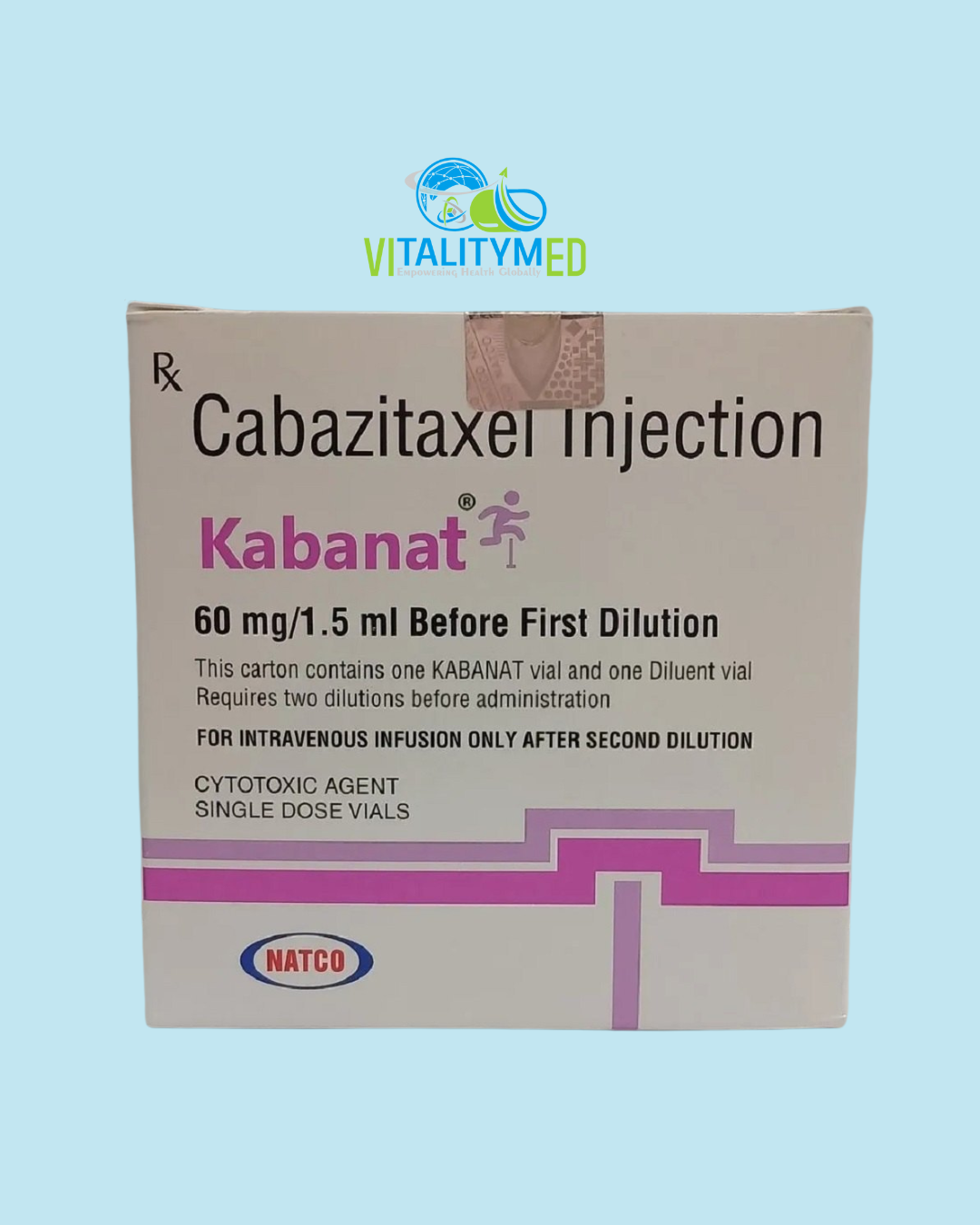Kabanat contains Cabazitaxel, a chemotherapy medicine used to treat advanced prostate cancer. It belongs to a group of drugs called taxanes, which are known for their ability to stop cancer cell division. Kabanat is usually given to patients with metastatic castration-resistant prostate cancer who have already been treated with other therapies, including docetaxel. It is administered by injection under the supervision of a trained healthcare professional, usually in a hospital or cancer treatment centre.
Mechanism of Action
Cabazitaxel works by interfering with the structures inside cells known as microtubules. Microtubules are essential for cells to divide and multiply. Kabanat stabilises these structures in a way that prevents them from breaking down, which is necessary for cancer cells to complete cell division. As a result, cancer cells are unable to divide and eventually die. This targeted disruption helps slow the growth and spread of prostate cancer cells, particularly those that have become resistant to other treatments.
Uses
Kabanat is used in the treatment of:
-
Metastatic castration-resistant prostate cancer, especially in patients who have already received treatment with docetaxel and whose disease has continued to progress
-
It is typically given in combination with a corticosteroid, such as prednisone, to improve treatment outcomes and help manage side effects
Adverse Effects
As with most chemotherapy medications, Kabanat can cause side effects, some of which may be serious. Common side effects include low white blood cell counts, which can increase the risk of infections. Other frequent effects are fatigue, diarrhoea, nausea, vomiting, hair thinning, and loss of appetite.Some patients may also experience anaemia, low platelet counts, back pain, or fluid retention. In rare cases, severe allergic reactions or gastrointestinal complications such as bleeding or abdominal pain can occur. Due to the potential for serious side effects, patients receiving Kabanat require close monitoring, including regular blood tests.
Promptly reporting symptoms such as fever, signs of infection, bleeding, severe diarrhoea, or breathing difficulties can help prevent complications and ensure timely medical care.







